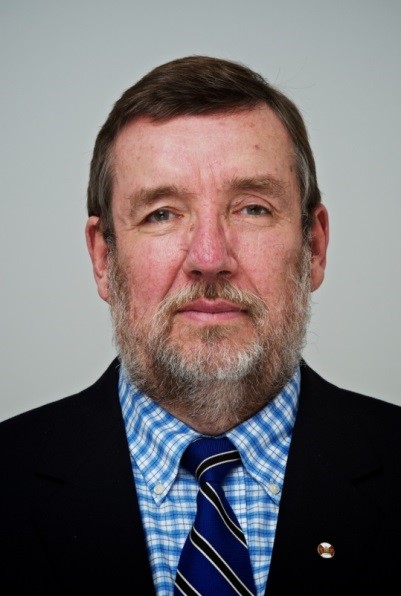报告时间:1月15日(星期二)10:00

报告地点:信息楼fun88乐体育官网体育310报告厅
报 告 人:Keith W. Hipel,加拿大滑铁卢大学教授/加拿大皇家科学院院士/加拿大工程院院士
报告题目:How to Conduct Original Research in Graduate Studies
内容简介:Based on four decades in mentoring Canadian and international graduate students, Keith Hipel uses the valuable experience, knowledge and insights that he has garnered to explain how to execute meaningful and original research. Of utmost importance is to follow your heart’s desire in carrying your research as a personal challenge to help others and society. In your domain of interest, find a problem for which a satisfactory solution does not yet exist. In an engineering thesis, often a methodology is created to tackle a tough practical problem such as designing a sustainable energy production system in which greenhouse gases are substantially reduced. Think like a detective when you carry out a literature review to ascertain where gaps exist in the literature and what types of attempts have been made in the past, if any, to bridge these gaps. Mainly keep track of what is of interest to you in a general sense and how it may be used in your research. Later, you can read the key papers in detail and upgrade your expertise in areas most closely tied to your research. You should not hesitate to discuss your ideas with others and seek guidance from your supervisors, experts and peers. Be sure to take every opportunity to attend lectures by experts at your university and international conference so you can obtain the latest information that is relevant with respect to your research. Use simple examples to develop, test and refine your research ideas and as the methodology you are developing matures, apply it to real world problems and make it as general as possible to it can be utilized in many application domains. Use a system of systems engineering framework to put your research into perspective and employ real data to demonstrate that your new methodology is a significant improvement over its competitors.
报告人简介:Keith W. Hipel is University Professor of Systems Design Engineering at the University of Waterloo where he is Coordinator of the Conflict Analysis Group. He is Former President of the Academy of Science within the Royal Society of Canada, Senior Fellow of the Centre for International Governance Innovation, Fellow of the Balsillie School of International Affairs, and Past-Chair of the Board of Governors of Renison University College. Dr. Hipel thoroughly enjoys mentoring students and is a recipient of the Distinguished Teacher Award, Faculty of Engineering Teaching Excellence Award, and the Award of Excellence in Graduate Supervision from the University of Waterloo, as well as the Outstanding Engineering Educator Award from IEEE Canada. His major research interests are the development of conflict resolution, multiple criteria decision analysis, time series analysis and other decision-making methodologies for addressing complex interdisciplinary system of systems engineering problems lying at the confluence of society, technology and the environment, with applications in water resources management, hydrology, environmental engineering, energy, and sustainable development. Prof. Hipel is the author or co-author of 5 books, 12 edited books, more than 330 journal papers, as well as many conference and encyclopedia articles (over 14,725 citations; H-index = 56, i10-index = 271). Dr. Hipel is the recipient of the Officer of the Order of Canada title; Japan Society for the Promotion of Science (JSPS) Eminent Scientist Award; Joseph G. Wohl Outstanding Career Award from the IEEE Systems, Man and Cybernetics (SMC) Society; IEEE SMC Norbert Wiener Award; three Honorary Doctorate degrees (France, Hungary, Canada); Miroslaw Romanowski Medal and the Sir John William Dawson Medal (Royal Society of Canada); Ven Te Chow Award from the Environmental and Water Resources Institute, American Society of Civil Engineers; Jiangsu Friendship Medal; Engineering Medal for Research and Development from Professional Engineers Ontario; and Foreign Member designation of the National Academy of Engineering of the United States of America.